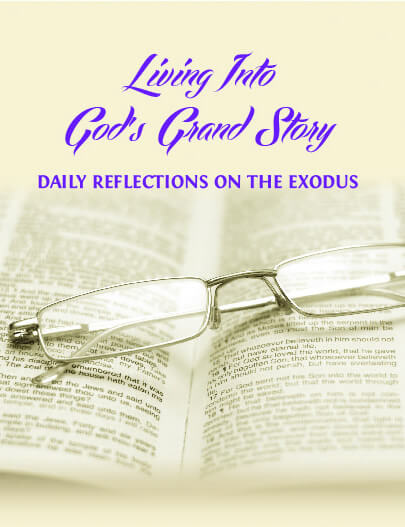
Exodus 8:1
What wisdom and understanding there is in the first question and answer of the old Westminster Catechism:
Question: What is the chief end of man?
Answer: Man’s chief end is to glorify God and to enjoy him forever.
Thus, the chief end of man is revealed in the last book of the Bible as we see glorified saints worshiping before the throne of God and singing: “Your are worthy, our Lord and God, to receive glory and honour and power” (Revelations 4:11). If humanity’s chief end is worship, then worship is also the chief end of the Exodus journey. The Exodus is all about being freed from bondage, fear, and oppression that God’s people might worship and enjoy Him.
The Exodus is about being freed up to truly worship and enjoy God. It is significant that the Hebrew word translated as “worship” in today’s text is the same word used elsewhere for “servitude” to Pharaoh. Pharaoh was the human representative of all the false gods of Egypt, and servitude to him was bitter and cruel. But God is a God of liberation who sides with the oppressed. He does not liberate the Israelites just so they can be free to do whatever they want. God liberates them so they can worship Him rather than serving Pharaoh. The Book of Common Prayer beautifully describes the freedom of worshiping God as the one “whose service is perfect freedom”. The Exodus is not a declaration of independence but a declaration of Israel’s dependence on God.
The Exodus is about experiencing a change of ownership rather than being owner free: “I will take you as my people, and I will be your God” (Exodus 6:7). God creates a people not to live for themselves but to live for Him. He sets us free so that we can worship and enjoy Him. We are redeemed for worship.
It was my privilege to recite the first question and answer from the Heidelberg Catechism at my Dutch father-in-law’s funeral. It is a statement of faith of his church that speaks eloquently to God’s deliverance of His people in the Exodus:
Question 1: What is your only comfort in life and death?
Answer: That I with body and soul, both in life and death, am not my own, but belong unto my faithful Savior Jesus Christ; who, with His precious blood, has fully satisfied for all my sins, and delivered me from all the power of the devil; and so preserves me that without the will of my heavenly Father, not a hair can fall from my head; yea, that all things must be subservient to my salvation, and therefore, by His Holy Spirit, He also assures me of eternal life.
REFLECTION
- Do you think of worship as lifeless or life giving? Explain.
- When do you most experience true worship of God?
- In whatever way works best for you, take some moments now to worship God.


